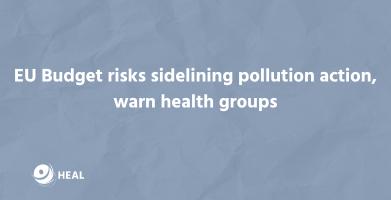In 2025, HEAL welcomed several new organisations into its international network of over 70 members committed to advancing health through environmental action. These new members bring valuable expertise in public health, environmental justice, and sustainable policy, further strengthening the capacity of the alliance to help face the challenges from biodiversity loss, pollution and climate change. Learn more about their missions and work below.
Hormone-disrupting chemicals found in personal care products and plastics harm children’s health, new research from the EU-funded ATHLETE project finds.
The exposure to endocrine-disrupting chemicals and the health effects on over 370 children in France were studied. Endocrine-disrupting chemicals, such as parabens and phthalates, were linked to poorer child overall health. It suggests that they could contribute to the development of multiple chronic diseases related to cardiometabolic, respiratory and neurodevelopmental health.
By studying the combined impacts of these chemical mixtures, the findings better reflect real-life exposures and resulting varied health impacts on children. The researchers call for public health policies to reduce exposure to these chemicals, improved labelling requirements, and public awareness campaigns.
“Our findings suggest that parabens and phthalates may affect multiple aspects of child health at the same time. Reducing exposure to these chemicals can help protect children. Policies should target sources of exposure, such as limiting parabens in personal care products. Our research also supports a shift toward regulating entire chemical families, such as parabens and phthalates, rather than individual compounds,” Ines Amine, doctoral researcher at Inserm and Grenoble Alpes University and first author of the study states.
Due to these concerning results and ubiquitousness of these chemicals, HEAL’s Executive Director Génon Jensen calls for stronger EU policies: “This research is a stark reminder that EU decision-makers must act urgently to protect children from harmful chemical, such as EDCs. Children remain exposed to a dangerous mixture of substances through everyday products, with potentially lifelong health consequences. As the EU prepares for the revision of its chemical safety legislation (REACH) this year, safeguarding health must be the top priority—this should include applying a mixture assessment factor (MAF) when assessing risks from chemicals.”



